 ALCESTIS AND OTHER PLAYS ADVISORY EDITOR: BETTY RADICE E URIPIDES was an Athenian born in 484 B.C . A member of a family of considerable rank, he disliked performing the public duties expected of him, preferring a life of introspection. Such a man was likely to win only grudging admiration and little popularity, and during fifty years writing of plays for the festivals of Dionysus he was awarded the prize only four or five times. His unpopularity seems to have come to a head towards the end of his life in some way unknown to us, and he went into voluntary exile at the court of Archelaus, King of Macedon; it was during these last months that he wrote what many consider his greatest work, The Bacchae. When news of his death reached Athens in 407 Sophocles appeared publicly in mourning for him. Euripides is thought to have written about ninety-two plays, of which seventeen known to be his survive.
ALCESTIS AND OTHER PLAYS ADVISORY EDITOR: BETTY RADICE E URIPIDES was an Athenian born in 484 B.C . A member of a family of considerable rank, he disliked performing the public duties expected of him, preferring a life of introspection. Such a man was likely to win only grudging admiration and little popularity, and during fifty years writing of plays for the festivals of Dionysus he was awarded the prize only four or five times. His unpopularity seems to have come to a head towards the end of his life in some way unknown to us, and he went into voluntary exile at the court of Archelaus, King of Macedon; it was during these last months that he wrote what many consider his greatest work, The Bacchae. When news of his death reached Athens in 407 Sophocles appeared publicly in mourning for him. Euripides is thought to have written about ninety-two plays, of which seventeen known to be his survive.
P HILIP V ELLACOTT has translated the following volumes for the Penguin Classics: the complete plays of Aeschylus, the complete plays of Euripides, and a volume of Menander and Theophrastus. He was educated at St Pauls School and Magdalene College, Cambridge, and for twenty-four years he taught classics (and drama for twelve years) at Dulwich College. He has lectured on Greek drama on ten tours in the USA, and has spent four terms as Visiting Lecturer in the University of California at Santa Cruz. He is also the author of Sophocles and Oedipus (1971), Ironic Drama: A Study of Euripides Method and Meaning (1975), The Logic of Tragedy: Morals and Integrity in Aeschylus Oresteia (1984) and An English Readers Guide to Aeschylus Oresteia (1991). EURIPIDES
Alcestis and Other Plays
Alcestis, Hippolytus, Iphigenia in TaurisTranslated with Introduction and Notes by PHILIP VELLACOTT PENGUIN BOOKS PENGUIN BOOKS Published by the Penguin Group Penguin Books Ltd, 80 Strand, London WC2R 0RL , England Penguin Group (USA) Inc., 375 Hudson Street, New York, New York 10014, USA Penguin Books Australia Ltd, 250 Camberwell Road, Camberwell, Victoria 3124, Australia Penguin Books Canada Ltd, 10 Alcorn Avenue, Toronto, Ontario, Canada M4V 3B2 Penguin Books India (P) Ltd, 11 Community Centre, Panchsheel Park, New Delhi 110 017, India Penguin Group (NZ), cnr Airborne and Rosedale Roads, Albany, Auckland 1310, New Zealand Penguin Books (South Africa) (Pty) Ltd, 24 Sturdee Avenue, Rosebank 2196, South Africa Penguin Books Ltd, Registered Offices: 80 Strand, London WC2R 0RL, England www.penguin.com This translation first published 1953 Reissued with a revised text and new Introduction 1974 Copyright 1953 by Philip Vellacott Copyright Philip Vellacott, 1974 All rights reserved The terms for the performance of these plays may be obtained from The League of Dramatists, 84 Drayton Gardens, London SW 10 9 SD , to whom all applications for permission should be made Except in the United States of America, this book is sold subject to the condition that it shall not, by way of trade or otherwise, be lent, re-sold, hired out, or otherwise circulated without the publishers prior consent in any form of binding or cover other than that in which it is published and without a similar condition including this condition being imposed on the subsequent purchaser ISBN: 978-0-14-196196-5 TO THE ATTIC PLAYERS

INTRODUCTION
E URIPIDES was born in 484 B.C . and died in 406.
The first two thirds of his life coincided with the miraculous rise of Athenian political power and cultural creativity, the fifty years between the victories over Persia at Salamis and Plataea and the beginning of the war between Athens and Sparta in 431. The retreat of the Persian force in 479 had left the Athenians with a devastated city, but in an unquestioned position as the leaders of Greek independence; and Athens was soon the most powerful member of the Delian League, an alliance of Greek states formed to resist Persian aggression. Within a generation the treasury of the League had been transferred from Delos to Athens, and the alliance was fast becoming an Athenian empire. By 440 this empire was widely felt as a menace to the freedom it had been designed to protect the freedom of small states and of Hellas as a whole; and Sparta, Corinth, and Thebes headed the resistance, which in 431 led to open war. Fifteen of the seventeen extant plays of Euripides were produced under the conditions imposed by this desperate struggle, which ended in 404 with total defeat. But four years before that disaster Euripides had gone into voluntary exile in Macedon, where he died early in 406.
Euripides had seen Aeschylus Oresteian Trilogy when he was twenty-six. All through his productive life he competed with Sophocles in the annual festivals of Dionysus. Sophocles, eleven years older, survived him by three years; but the two men, though contemporaries, belonged to two different generations, and their works reflect two different worlds of thought and interpretation of experience. Each is aware of a supernatural reality in the midst of which man pursues his natural course; and neither credits this reality with benevolence towards mankind. But whereas in Sophocles the gods in some degree understand human thoughts and actions and on occasion take a hand in their affairs, so that reverence for them is the proper attitude of humans, Euripides presents the gods rather as symbols of amoral cosmic or social forces, blind and often destructive in their operation; powers which man can apprehend if not explain, but which are themselves incapable of understanding the spiritual qualities of man or the values by which he lives. Gods are both the beauty and the peril of life, the peremptory conditions of living, the facts of the world as it is.
Men and women must accept both the benefits and the cruelties of the world, must endure the gift of a god; piety is acknowledgement of fact. In Euripides plays kindness, sympathy, and self-knowledge are more important than reverence. The reverence Aphrodite demands from us is recognition that she is a part of our nature. The cause of disaster is more often deficient humanity than want of respect for powers who do not respect the spirit of man; this is true even in The Bacchae. Unpredictable Chance (Tych) shares with Necessity (anank) the main direction of human lives, and neither of these deities can be affected by reverence or propitiation. Beyond human life, and out of reach of human thought, is Zeus, whose function is as obscure as his nature, except that he too must bow to Necessity.
Sophocles treated Athena and Apollo with respect; Euripides treated Olympians though Zeus is usually an exception ironically. Both poets lived in their maturity through the generation of the long war; Sophocles philosophy survived that experience; Euripides philosophy can almost be said to have reckoned with it before it came; eight of the plays that we possess from the war period are wholly or partly concerned with the processes of war. Yet this theme only began to occupy Euripides mind when he was well past fifty; and it did not replace, but rather enlarged and complemented, the greater theme which this poet pursued through his whole life: the relationship of man to woman. His study of this, the most insistent and universal problem of human life, achieved a radical profundity, a freedom from conventional assumption, which was as rare in his day as it has been in every century since. To say, as some critics earlier in our own century did, that Euripides argued for the emancipation of women is untrue and beside the point; there is every indication that he accepted the ascendancy of man as an unalterable feature of society. But his plays contain, hidden below the popular surface, an appeal to men to stop deceiving themselves about the benevolence of their behaviour to women, to recognize what their assumptions and their institutions really involve.
Next page

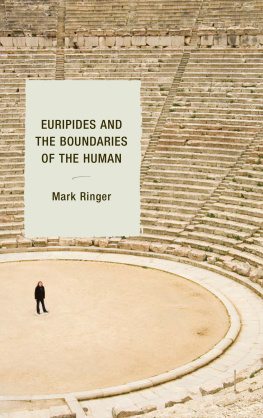
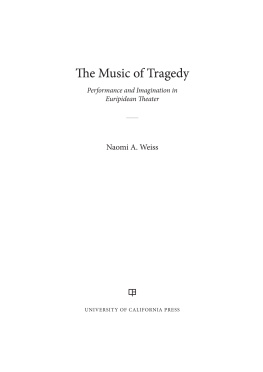

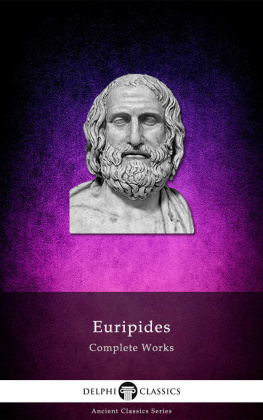
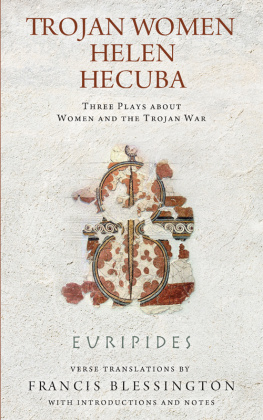
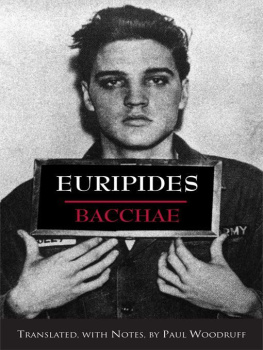
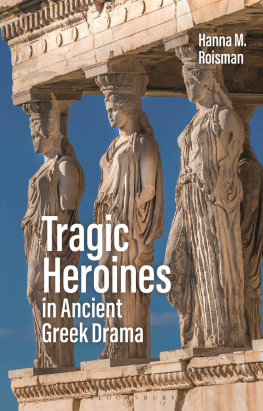
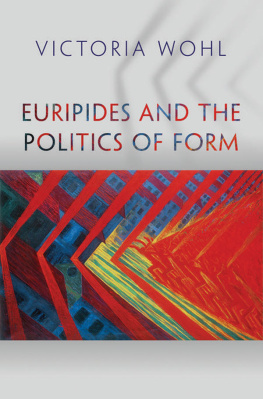
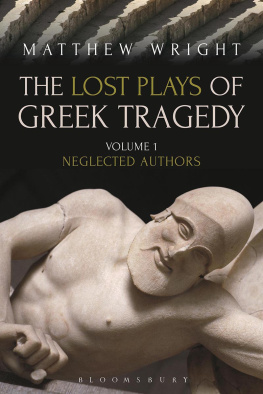

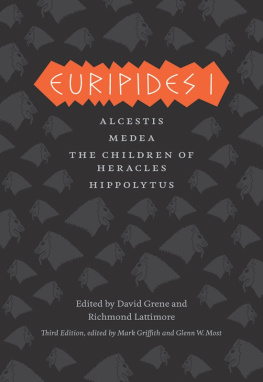
![Euripides - Classic Greek Drama: 10 Plays by Euripides in a Single File [NOOK Book]](/uploads/posts/book/43473/thumbs/euripides-classic-greek-drama-10-plays-by.jpg)
 ALCESTIS AND OTHER PLAYS ADVISORY EDITOR: BETTY RADICE E URIPIDES was an Athenian born in 484 B.C . A member of a family of considerable rank, he disliked performing the public duties expected of him, preferring a life of introspection. Such a man was likely to win only grudging admiration and little popularity, and during fifty years writing of plays for the festivals of Dionysus he was awarded the prize only four or five times. His unpopularity seems to have come to a head towards the end of his life in some way unknown to us, and he went into voluntary exile at the court of Archelaus, King of Macedon; it was during these last months that he wrote what many consider his greatest work, The Bacchae. When news of his death reached Athens in 407 Sophocles appeared publicly in mourning for him. Euripides is thought to have written about ninety-two plays, of which seventeen known to be his survive.
ALCESTIS AND OTHER PLAYS ADVISORY EDITOR: BETTY RADICE E URIPIDES was an Athenian born in 484 B.C . A member of a family of considerable rank, he disliked performing the public duties expected of him, preferring a life of introspection. Such a man was likely to win only grudging admiration and little popularity, and during fifty years writing of plays for the festivals of Dionysus he was awarded the prize only four or five times. His unpopularity seems to have come to a head towards the end of his life in some way unknown to us, and he went into voluntary exile at the court of Archelaus, King of Macedon; it was during these last months that he wrote what many consider his greatest work, The Bacchae. When news of his death reached Athens in 407 Sophocles appeared publicly in mourning for him. Euripides is thought to have written about ninety-two plays, of which seventeen known to be his survive.